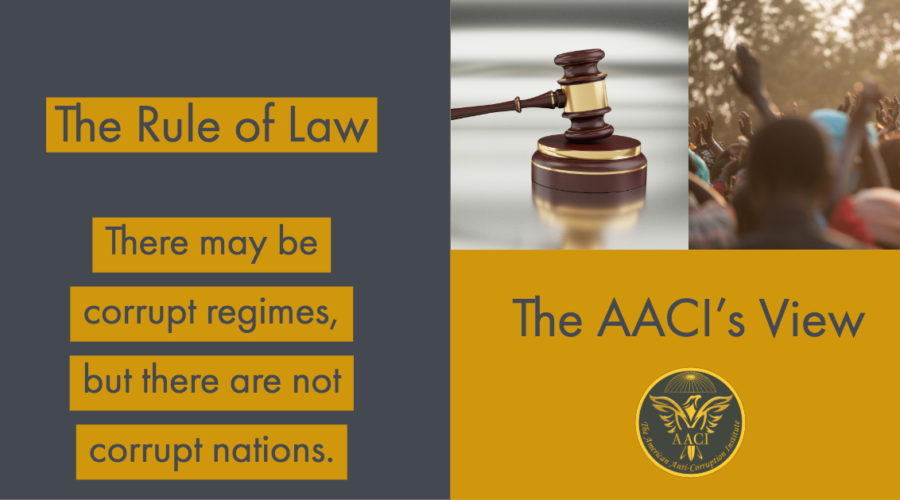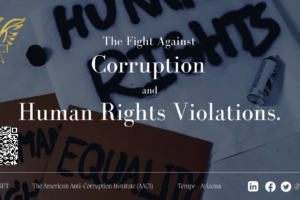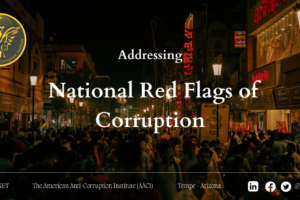
The fight against corruption cannot be talked about in the absence of the rule of law. Depending on it, governments develop national anti-corruption strategies for the fight against corruption, money laundering and financing terrorism. The rule of law is the foundation for sound anti-corruption strategy. Citizens realize this direct relationship between corruption and the rule of law. Although corruption is more prevalent and more pronounced in developing countries than in developed countries, its destructive effects are even more lethal in developing countries.
The mere talk about the existence of the rule of law, not accompanied by concrete publicly-visible evidence, destroys the rule of law and makes the fight against corruption ineffective and illusional. In all countries, citizens are the ultimate authority to judge whether there is a real rule of law or not. Therefore, the wider the distrust gap between the community and public institutions, the more likely the prevalence of the rule of law is unreal, and corruption is well rooted in the socio-economic and, probably, political fabric of the governance system.
The core axiom of the prudent rule of law is that people are equal before the law. Though this explicit assumption is given in developed countries, people are not equal before the law in most developing countries. Many reasons lead to this harsh reality. Nepotism, unaccountability for public officials and political power, lack or absence of transparency and accountability for country funds and resources; especially the natural resources, intentional and systematic damage for national healthcare and education systems, and nonexistence or ineffective of elected legislatures, among many other factors, render the rule of law ineffectual. Regrettably, such a distressed governance environment comes with hefty costs.
These costs manifest in a continuous increase in poverty and unemployment rates, provision of substandard quality of public services, widening the gap between the rich and the poor, constant rise in investment risks, and escalating the government oppression of the opinion freedom. It is an apparent failure of governance. Inevitably, this failure will result in severe social, economic and political unrests.
There may be corrupt regimes, but there are not corrupt nations. This fact will always be valid as long as governments are formed by the people and works for the best interest of the people, not for the corrupt few.











































